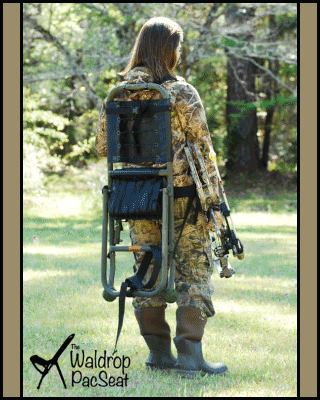Violators beware!
By Bill Parker Editor
Posted on June 20, 2013
http://www.outdoornews.com/June-2013/Violators-beware/ Lansing — Legislation signed into law recently by Gov. Rick Snyder puts game law violators on notice by fully entering Michigan into the multi-state Wildlife Violator Compact.
Michigan has been a member of the Wildlife Violator Compact for years, but an oversight in the original wording of the legislation that entered Michigan into the Compact had been missing. In the other states involved in the Compact, a person who commits a game law violation and doesn’t take care of the ticket automatically loses his/her hunting or trapping license. That wasn’t enforcable here, because of a wording glitch in Michigan.
“This is a small change, but it’s huge for us,” Dean Molnar, the assistant chief of the DNR Law Division, told Michigan Outdoor News. “This fixed a piece of it that wasn’t in the original contract.”
The Wildlife Violator Compact is an agreement among 38 states that if a person is convicted of a game law violation he/she is treated as such in each participating state. For instance, if someone from Michigan travels to Colorado or any of the participating states, commits a violation and loses his/her hunting license for three years, those hunting privileges are suspended in all 39 states in the Compact. In addition, if someone is ticketed by a conservation officer for a game law violation, but doesn’t take care of the ticket in the allotted time frame, their hunting privileges can be suspended until the infraction is attended to. That’s the part that was missing in Michigan.
“If you got a ticket and didn’t go to court, you’d be held in contempt of court, but we couldn’t take their license away,” Molnar said. “Now, if a Michigan resident doesn’t take care of a ticket (from Michigan or any other state), the DNR will be notified and we will suspend their hunting license and it will be suspended in all other states in the compact.”
Violators who are ticketed in other states but decide to ignore the ticket because they don’t plan to return to that destination to hunt in the future would still be held accountable for their infraction. Failure to Appear cases are expected to be reduced because now residents and non-residents who ignore citations will have their licenses suspended in their home states as well as the other Wildlife Violator Compact states.
“This bill gives the DNR further capabilities to enforce the Wildlife Violator Compact in our state, which will help protect our wildlife population by more effectively cracking down on poachers,” Snyder said in a release.
The legislation, sponsored by Republican Sen. Howard Walker of Traverse City, also provides for an appeal process and requires the DNR to notify residents of Michigan of any suspension, the opportunity for an evidentiary hearing, and obligation to surrender their licenses. The penalty for not surrendering any licenses would be a misdemeanor.
A person who fails to answer a citation or who fails to comply with an order or judgment relating to hunting, fishing, or trapping must appear in court within seven days or comply with an order or judgment within 14 days. If the person fails to comply, the court will notify the DNR and the department will suspend the violator’s licenses and notify the person of the suspension.
The bill also authorizes the DNR to amend the provisions or withdraw from the Compact.
The concept of a Wildlife Violator Compact was first advanced in the early 1980s by member states in the Western Association of Fish and Wildlife Agencies. Law enforcement administrators and wildlife commissioners from several states began discussing the idea of a compact based on the format of the existing Drivers License Compact and Non-Resident Violator Compact, both of these related to motor vehicle operator licensing and enforcement.
Colorado, Nevada and Oregon were the first states to adopt the Wildlife Violator Compact in 1989. Since then, 36 other states including Michigan have joined the Compact. They are: Alabama, Indiana, Missouri, Tennessee, Alaska, Kansas, New Mexico, Texas, Arizona, Kentucky, New York, Utah, California, Louisiana, North Dakota, Vermont, Maryland, Ohio, Virginia, Florida, Oklahoma, Washington, Georgia, Minnesota, West Virginia, Idaho, Mississippi, Pennsylvania, Wisconsin, Illinois, Montana, South Carolina, Wyoming, Iowa, South Dakota.
“We really appreciate Sen. Walker’s and the rest of the legislature’s cooperation to get this bill passed,” Molnar said. “We needed something that was comparable with other states and now we have it.”




















